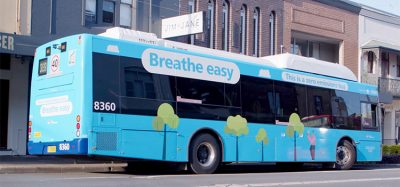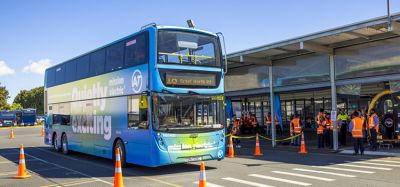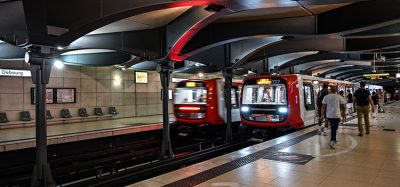Midland Metro tram heads to Spain for catenary-free conversion
- Like
- Digg
- Del
- Tumblr
- VKontakte
- Buffer
- Love This
- Odnoklassniki
- Meneame
- Blogger
- Amazon
- Yahoo Mail
- Gmail
- AOL
- Newsvine
- HackerNews
- Evernote
- MySpace
- Mail.ru
- Viadeo
- Line
- Comments
- Yummly
- SMS
- Viber
- Telegram
- Subscribe
- Skype
- Facebook Messenger
- Kakao
- LiveJournal
- Yammer
- Edgar
- Fintel
- Mix
- Instapaper
- Copy Link
Posted: 23 January 2017 | Katie Sadler, Intelligent Transport | No comments yet
A Midland Metro tram has travelled to Spain to be fitted with hi-tech batteries allowing it to run catenary-free in the UK from autumn this year.


A Midland Metro tram has travelled to Spain to be fitted with hi-tech batteries allowing it to run catenary-free in the UK from autumn this year.
Operator National Express has confirmed a Midland Metro Urbos 3 tram left its depot via two flatbed lorries bound for CAF’s factory in Zaragoza, Spain, where it was made.
Tram manufacturer CAF will then fit the Urbos 3 with two lithium ion cells on the roof of the vehicle and undertake exhaustive tests before returning the tram to the UK in the autumn where it will run without the need for overhead power cables. Once operational, the batteries will be recharged by overhead lines along other parts of the route.
According to National Express, further test will then be carried out at the Midland Metro depot before work begins on fitting out the rest of the 21-tram fleet.
Midland Metro will be the first commercial tram system in the UK to have catenary-free running
The batteries have been commissioned by the West Midlands Combined Authority (WMCA), which owns the Midland Metro system. Once installed and fully operational, the Metro will be the first commercial tram system in the UK to have catenary-free running, allowing the trams to operate over short distances without the need for overhead cables and equipment.


Cllr Roger Horton, lead member for rail and Metro on the WMCA’s transport delivery committee, said: “It’s a major milestone for the Metro as it will be the first system in the UK to have catenary-free running.
“Battery technology is now so developed we can use it to get the tram through sensitive areas and overcome what would otherwise be expensive infrastructure works.
“This has got to be good news as the Midland Metro continues to expand and provide an effective alternative to the private car, helping to ease congestion and support economic growth.”
According to the WMCA, The total cost of fitting out the fleet will be a one-off sum of £15.5 million.
Related topics
Alternative Power, Fleet Management & Maintenance
Related modes
Metro








